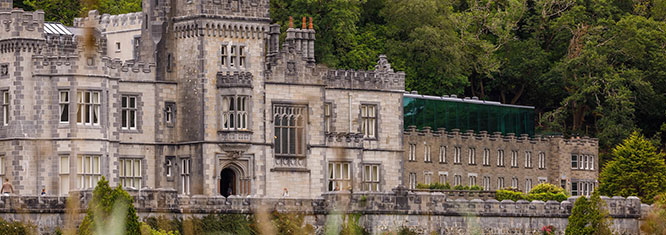Abstract Title
Religious education in Irish secondary schools under Catholic patronage currently tend to be narrowly academic rather than academically rigorous.
Abstract
The central conceptual claim of my research is that religious education in Irish secondary schools under Catholic patronage currently tend to be narrowly academic rather than academically rigorous. By narrowly academic I mean content that is solely aimed at ‘teaching to the test’ and is devoid of lived practice and context; in contrast, by academically rigorous I mean students learning to learn by grappling with questions, reflecting on personal experience and grounding content in the lived practice of the faith. The primary purpose of schooling is academic. Religious education as an academic subject provides an opportunity for the intellectually rigorous exploration of a faith tradition or faith traditions. Irish schools under Catholic patronage should present the Catholic tradition both critically and self-critically as part of a wider concern to foster openness to creative and critical reflection in all areas of life. However, I contend that in order to be academically rigorous, religious education should, while discussing the doctrines and beliefs of Catholicism also explore the religious practices in which theses doctrines and beliefs are embodied. I contend that, in this sense, an authentic, academically rigorous religious education has rarely been offered in Irish Catholic schools.
Having been on a pilgrimage of educational belonging from American to Irish schools, I have the privilege of being able to speak comparatively in relation to differing educational experiences in general and religious education in particular. The inextricable link between how society views the significance of religion and how religious education is taught in our schools is particularly evident in Ireland. The majority of our schools are Catholic, which can account for the cultural hangover and the crisis of identity to which we now find ourselves in. For quite some time, there was no perceived need to have a focused understanding of the role of being Catholic in intellectual and cultural life. There is a new and urgent opportunity for intellectual lay and clerical leadership to articulate the voice of the Irish Catholic Church in the public square. Similarly, we need to produce a proportionate level of theological research on Catholic education to dialogue with the academy.
The signs of grace that I have encountered in my pursuit of this concept are that the people of Ireland are primed for change. The recent referendums regarding the legalization of abortion and the removal of the “baptism barrier” from Irish Catholic primary schools are indicative of this. These radical departures from Ireland’s Catholic roots may also, paradoxically, provide new grace-filled opportunities in both the Irish Catholic Church and its Catholic schools to respond anew and reimagine how Catholic education can serve the people of Ireland today.
Religious education in Irish secondary schools under Catholic patronage currently tend to be narrowly academic rather than academically rigorous.
The central conceptual claim of my research is that religious education in Irish secondary schools under Catholic patronage currently tend to be narrowly academic rather than academically rigorous. By narrowly academic I mean content that is solely aimed at ‘teaching to the test’ and is devoid of lived practice and context; in contrast, by academically rigorous I mean students learning to learn by grappling with questions, reflecting on personal experience and grounding content in the lived practice of the faith. The primary purpose of schooling is academic. Religious education as an academic subject provides an opportunity for the intellectually rigorous exploration of a faith tradition or faith traditions. Irish schools under Catholic patronage should present the Catholic tradition both critically and self-critically as part of a wider concern to foster openness to creative and critical reflection in all areas of life. However, I contend that in order to be academically rigorous, religious education should, while discussing the doctrines and beliefs of Catholicism also explore the religious practices in which theses doctrines and beliefs are embodied. I contend that, in this sense, an authentic, academically rigorous religious education has rarely been offered in Irish Catholic schools.
Having been on a pilgrimage of educational belonging from American to Irish schools, I have the privilege of being able to speak comparatively in relation to differing educational experiences in general and religious education in particular. The inextricable link between how society views the significance of religion and how religious education is taught in our schools is particularly evident in Ireland. The majority of our schools are Catholic, which can account for the cultural hangover and the crisis of identity to which we now find ourselves in. For quite some time, there was no perceived need to have a focused understanding of the role of being Catholic in intellectual and cultural life. There is a new and urgent opportunity for intellectual lay and clerical leadership to articulate the voice of the Irish Catholic Church in the public square. Similarly, we need to produce a proportionate level of theological research on Catholic education to dialogue with the academy.
The signs of grace that I have encountered in my pursuit of this concept are that the people of Ireland are primed for change. The recent referendums regarding the legalization of abortion and the removal of the “baptism barrier” from Irish Catholic primary schools are indicative of this. These radical departures from Ireland’s Catholic roots may also, paradoxically, provide new grace-filled opportunities in both the Irish Catholic Church and its Catholic schools to respond anew and reimagine how Catholic education can serve the people of Ireland today.


